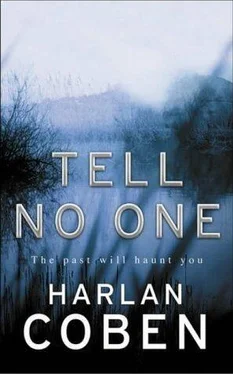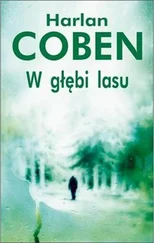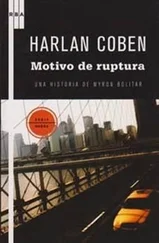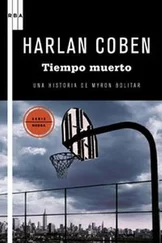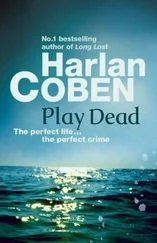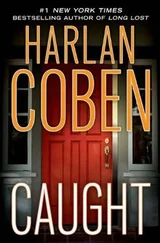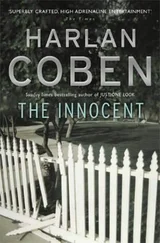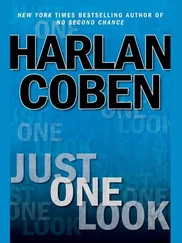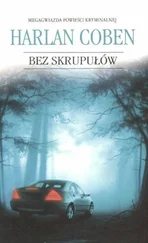"Is this Linda Beck?"
"Who is this?"
"I'm Special Agent Kimberly Green with the Federal Bureau of Investigation. I'm with my partner, Special Agent Rick Peck. We'd like to come up and ask you some questions."
Shauna leaned over before Linda could respond. "Our attorney's name is Hester Crimstein," she shouted into the intercom. "You can call her."
"You're not suspects in any crime. We just want to ask you some questions-"
"Hester Crimstein," Shauna interrupted. "I'm sure you have her number. Have a really special day."
Shauna released the button. Linda looked at her. "What the hell was that?"
"Your brother's in trouble."
"What?"
"Sit down," Shauna said. "We need to talk."
Raisa Markov, a nurse who cared for Dr. Beck's grandfather, answered the firm knock. Special agents Carlson and Stone, now working in conjunction with NYPD detectives Dimonte and Krinsky, handed her the document.
"Federal warrant," Carlson announced.
Raisa stepped aside without reacting. She had grown up in the Soviet Union. Police aggression did not faze her.
Eight of Carlson's men flooded into the Beck abode and fanned out.
"I want everything videotaped," Carlson called out. "No mistakes."
They were moving fast in the hope of staying a half-step ahead of Hester Crimstein. Carlson knew that Crimstein, like many a natty defense attorney in this post-OJ era, clung to the claims of police incompetence and/or misconduct like a desperate suitor. Carlson, a rather natty law enforcement officer in his own right, would not let that happen here. Every step/movement/breath would be documented and corroborated.
When Carlson and Stone first burst into Rebecca Schayes's studio, Dimonte had not been happy to see him. There had been the usual local-cops-versus-feds macho-turf posturing. Few things unify the FBI and the local authorities, especially in a big city like New York.
But Hester Crimstein was one of those things.
Both sides knew that Crimstein was a master obscurer and publicity hound. The world would be watching. No one wanted to screw up. That was the driving force here. So they forged an alliance with all the trust of a Palestinian-Israeli handshake, because in the end, both sides knew that they needed to gather and nail down the evidence fast – before Crimstein mucked up the waters.
The feds had gotten the search warrant. For them, it was a simple matter of walking across Federal Plaza to the southern district federal court. If Dimonte and the NYPD had wanted to get one, they'd have had to go to the county courthouse in New Jersey – too much time with Hester Crimstein lurking at their heels.
"Agent Carlson!"
The shout came from the street corner. Carlson sprinted outside, Stone waddling behind him. Dimonte and Krinsky followed. At the curb, a young federal agent stood next to an open trash canister.
"What is it?" Carlson asked.
"Might be nothing, sir, but…" The young federal agent pointed down to what looked like a hastily discarded pair of latex gloves.
"Bag them," Carlson said. "I want a gun residue test done right away." Carlson looked over to Dimonte. Time for more cooperation – this time, via competition. "How long will it take to get done at your lab?"
"A day," Dimonte said. He had a fresh toothpick in his mouth now and was working it over pretty well. "Maybe two."
"No good. We'll have to fly the samples down to our lab at Quantico."
"Like hell you will," Dimonte snapped.
"We agreed to go with what's fastest."
"Staying here is fastest," Dimonte said. "I'll see to that."
Carlson nodded. It was as he expected. If you wanted the local cops to make the case a big-time priority, threaten to take it away from them. Competition. It was a good thing.
Half an hour later, they heard another cry, this time coming from the garage. Again they sprinted in that direction.
Stone whistled low. Dimonte stared. Carlson bent down for a better look.
There, under the newspapers in a recycle bin, sat a nine millimeter handgun. A quick sniff told them the gun had recently been fired.
Stone turned to Carlson. He made sure that his smile was off camera.
"Got him," Stone said softly.
Carlson said nothing. He watched the technician bag the weapon. Then, thinking it all through, he began to frown.
The emergency call on my beeper involved TJ. He scraped his arm on a doorjamb. For most kids, that meant a stinging spray of Bactine; for TJ, it meant a night in the hospital. By the time I got there, they had already hooked him up to an IV. You treat hemophilia by administering blood products such as cryoprecipitate or frozen plasma. I had a nurse start him up right away.
As I mentioned earlier, I first met Tyrese six years ago when he was in handcuffs and screaming obscenities. An hour earlier, he had rushed his then nine-month-old son, TJ, into the emergency room. I was there, but I wasn't working the acute side. The attending physician handled TJ.
TJ was unresponsive and lethargic. His breathing was shallow. Tyrese, who behaved, according to the chart, "erratically" (how, I wondered, was a father who rushes an infant to an emergency room supposed to act?), told the attending physician that the boy had been getting worse all day. The attending physician gave his nurse a knowing glance. The nurse nodded and went to make the call. Just in case.
A fundoscopic examination revealed that the infant had multiple retinal hemorrhages bilaterally – that is, the blood vessels in the back of both eyes had exploded. When the physician put the pieces together – retinal bleeding, heavy lethargy, and, well, the father-he made a diagnosis:
Shaken baby syndrome.
Armed security guards arrived in force. They handcuffed Tyrese, and that was when I heard the screamed obscenities. I rounded the corner to see what was up. Two uniformed members of the NYPD arrived. So did a weary woman from ACS – aka the Administration for Children Services. Tyrese tried to plead his case. Everybody shook their heads in that what's-this-world-coming-to way.
I'd witnessed scenes like this a dozen times at the hospital. In fact, I'd seen a lot worse. I'd treated three-year-old girls with venereal diseases. I once ran a rape kit on a four-year-old boy with internal bleeding. In both cases – and in all similar abuse cases I'd been involved with – the perpetrator was either a family member or the mother's most recent boyfriend.
The Bad Man isn't lurking in playgrounds, kiddies. He lives in your house.
I also knew – and this statistic never failed to stagger me – that more than ninety-five percent of serious intracranial injuries in infants were due to child abuse. That made it pretty damn good-or bad, depending on your vantage point – odds that Tyrese had abused his son.
In this emergency room, we've heard all the excuses. The baby fell off the couch. The oven door landed on the baby's head. His older brother dropped a toy on him. You work here long enough, you grow more cynical than the most weathered city cop. The truth is, healthy children tolerate those sorts of accidental blows well. It is very rare that, say, a fall off a couch alone causes retinal hemorrhaging.
I had no problem with the child abuse diagnosis. Not at first blush anyway.
But something about the way Tyrese pleaded his case struck me odd. It was not that I thought he was innocent. I'm not above making quick judgments based on appearance – or, to use a more politically current term, racial profiling. We all do it. If you cross the street to avoid a gang of black teens, you're racial profiling; if you don't cross because you're afraid you'll look like a racist, you're racial profiling; if you see the gang and think nothing whatsoever, you're from some planet I've never visited.
Читать дальше
